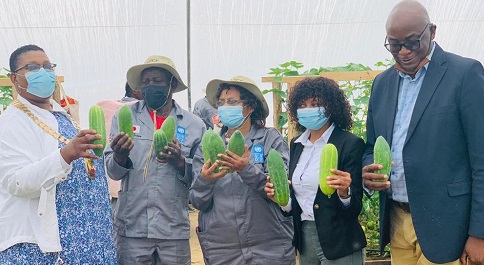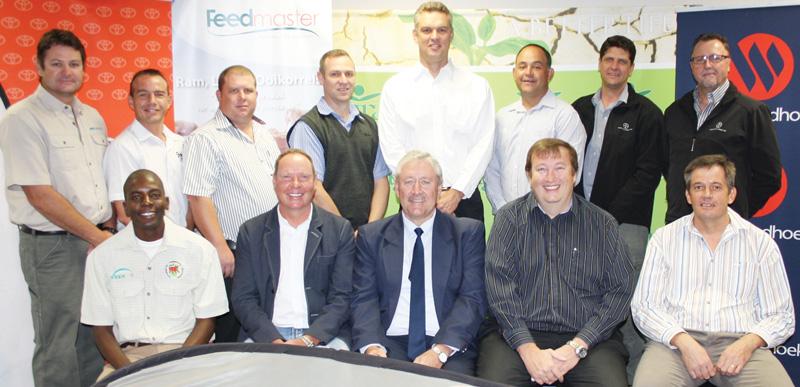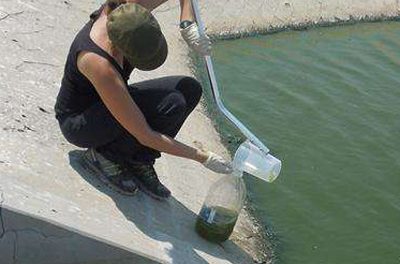
Build Back Better urban agriculture project’s first harvest delivers

The first harvest of the Build Back Better (BBB) urban agriculture project was witnessed by her Worship Cllr Louisa Kativa the Mayor of Swakopmund, this week.
Her Worship Mayor Kativa congratulated the programme facilitators and the thirty beneficiaries on their first harvest from the project
The BBB urban agriculture is the brainchild of a multi-stakeholder partnership that includes the Government of Japan, UNDP Namibia, the Municipality of Swakopmund, and the Ministry of Agriculture, Water and Land Reform.
Swakopmund city garden employs active technology (greenhouses) and passive technology (raised beds). The adoption of greenhouses and raised beds were needed to mitigate the adverse environmental and climate conditions in the coastal region through the BBB urban agriculture project funded by Japan.
These innovative urban farming solutions provide a fully controlled environment, using minimal water and energy per square foot. This approach has enabled the production of leafy greens, bulbous vegetables and herbs. Currently, thirty beneficiaries, including women, youth and vulnerable persons, are directly benefiting from this garden and plans are already in full gear to scale up operations.
The Build Back Better (BBB) urban agriculture project is also implementing similar multi-faceted interventions in three other regions in Namibia (Kavango, Khomas and Hardap).
These interventions are focused on capacitating the production of horticultural crops that address nutritional deficiencies affecting urban communities. Beneficiaries of the Build Back Better programme will include women, youth and vulnerable persons.
The bountiful harvest from the Swakopmund Municipal gardens highlights that the BBB urban agriculture project is an excellent example of a transformative approach to food production that meets the needs of consumers, farmers and planet earth.











































